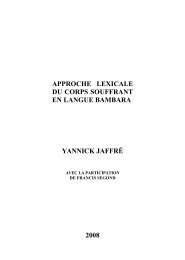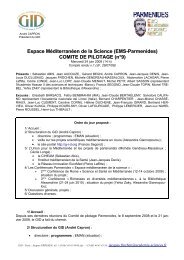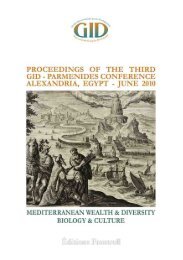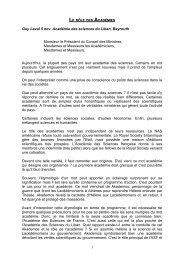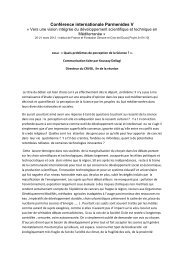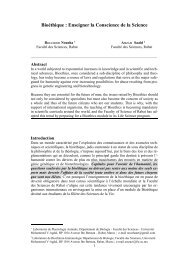Create successful ePaper yourself
Turn your PDF publications into a flip-book with our unique Google optimized e-Paper software.
In the run up to the law there was considerable debate about the need<br />
for such a law, and whether it might run counter to cultural norms and<br />
expectations. Politicians seemed lukewarm but Gender activists lobbied<br />
hard for the law. In some sectors of the community there were concerns<br />
that the law could criminalise some aspects of domestic and conjugal<br />
relations leading to irreparable damage and even marital break-ups<br />
with the expected negative consequences for couples, especially women,<br />
and children.<br />
Lack of Success in Containing Sexual and Domestic Violence<br />
In spite of Government efforts and the interventions of interested<br />
NGOs, particularly those that espouse gender empowerment and women’s<br />
welfare, Ghanaian Newspapers and media continue to report copiously<br />
episodes of sexual violence, almost on daily basis. The same<br />
press commentary has expressed surprise at the recurrence of the phenomenon,<br />
leading sometimes to search for explanations.<br />
In debating the issue in the media two positions seem to emerge.<br />
Firstly, there is the view that widespread sexual violence and physical<br />
abuse have always existed in the country though not widely reported by<br />
the press and the media. Therefore what is now seen as a phenomenal<br />
explosion ought to be nothing more than changing media interest in an<br />
old issue. The second argument is that the current high visibility of<br />
sexual violence should be blamed on globalisation and Western influence<br />
spread by the media’s own portrayal of permissiveness as well as<br />
on the agency of Western sources of popular entertainment including<br />
cinema and video shows which have glamorised sex and sexual violence.<br />
It would seem that both explanations have kernels of truth. Liberalisation<br />
of the media since the beginnings of the 1990s, alongside what in<br />
Ghana became the breach in the ‘culture of silence’ imposed by the<br />
government of the Provisional National Defence Council’s (PNDC)<br />
saw the emergence of a number of media houses and a keen competition<br />
among them. It did not take long for media moguls seeking to promote<br />
their readership and listening clientele to realise that they could<br />
enhance their readership by feeding the insatiable Ghanaian hunger for<br />
exotic stories with precisely such material, including stories on inordin-<br />
- 191 -




